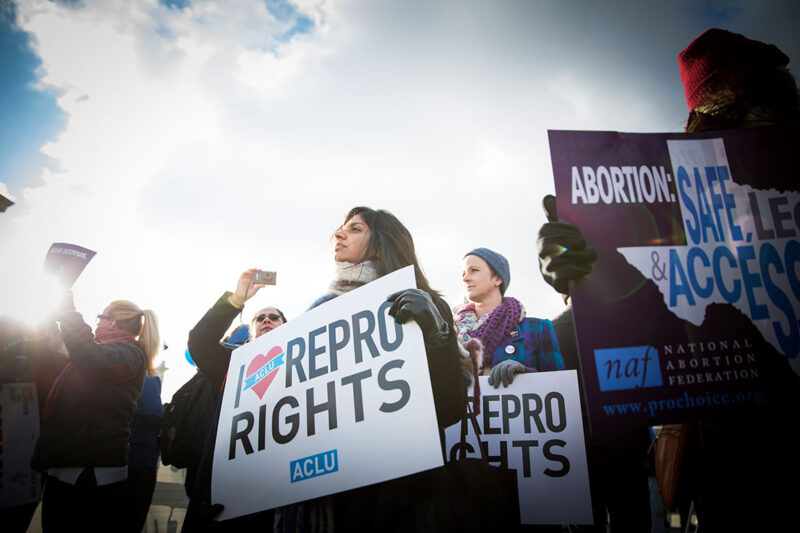We’ve Read the Trump Administration Draft Rule on Contraceptive Coverage, and It’s Frightening


On Wednesday, Vox published a draft interim rule to alter the rule that requires workplace insurance plans to include coverage of contraception without a co-pay. It’s a policy change promised in the administration’s so-called religious liberty executive order. And it will make your hair stand on end.
The contraception rule was meant to further women’s health and equality. The draft from yesterday proves once again that the administration has little interest in either.
Here are just a few highlights from its 125 pages:
1. The draft rule authorizes any employer to deny its employees contraceptive coverage if it has a religious or moral objection.
Gone would be the provision that today, in most cases, ensures that employees still get coverage even if their employer objects. Instead, consistent with this draft, employers of any stripe could block coverage entirely.
It’s a radical change from the rule in effect today. It’s a rule that, if put in place, will require employees of large for-profit and nonprofit companies alike to pay for their employer’s religious beliefs.
2. The draft rule is shameful in its hypocrisy.
The draft rule suggests that women won’t be hurt when employers are authorized to deny contraceptive coverage because, the commentary says, women can access contraception through government programs, such as Title X and Medicaid.
But those are the very programs now under attack. This, after all, is the administration hell-bent on denying women eligible for Medicaid the ability to turn to Planned Parenthood for contraceptive services. This is the administration seeking to slash Medicaid, which pays for 75 percent of all publicly funded family planning. This is the administration that acted swiftly to undo regulations ensuring that Planned Parenthood and other providers couldn’t be blocked from participation in the Title X family planning program for political reasons.
The argument is shameful and shameless.
3. The draft rule hurts religious liberty.
The commentary points to the provision in today’s rule that exempts houses of worship from the requirement to provide contraceptive coverage, in an effort to argue that the government’s interest in providing contraceptive coverage can’t be that compelling if affords exceptions such as this.
That’s risky talk, as defenders of religious liberty, such as Douglas Laycock, have argued. Indeed, in a piece in The Washington Post, Professor Laycock characterized this very argument as “a mortal threat to an essential and widespread source of protection for religious liberty.” He reasoned that, if “legislators and administrative agencies cannot enact a narrow religious exemption without it being expanded to become all-inclusive, many of them will not enact any religious exemptions at all.”
4. The draft rule shows that, when it comes to discrimination, the administration either just doesn’t get it or, more likely, is content to let it happen.
In the language justifying the rule, the administration says that even if the contraceptive coverage serves a compelling interest in furthering gender equality, there’s no reason to require any particular employer to comply with the existing contraception coverage requirement.
Imagine that statement in any other context. Imagine, for example, the government saying its interest in ending discrimination against women in hiring didn’t mean it had to require compliance by an employer that objected to the antidiscrimination rules for religious reasons.
Such a proposition would readily be seen for what it is — inconsistent with the idea of ending discrimination. Rules barring discrimination, after all, don’t serve their purpose if they apply only to those who voluntarily don’t discriminate.
5. The administration defends the rule in part with a misguided claim that it can put an end to litigation.
Nothing could be further from the truth. And if President Trump proceeds with the rule as announced, he will once again see us in court. We will not be alone.
Stay informed
Sign up to be the first to hear about how to take action.
By completing this form, I agree to receive occasional emails per the terms of the ACLU's privacy statement.
By completing this form, I agree to receive occasional emails per the terms of the ACLU's privacy statement.

